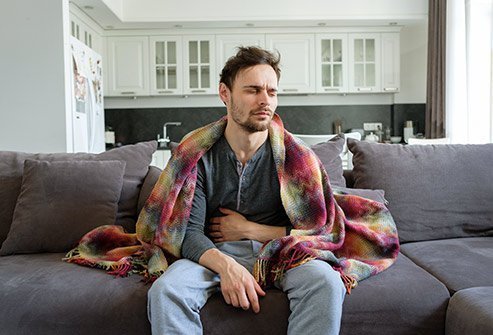Okay. I was doing some research on covid and vaccines and whatnot, and came across a couple of interesting points I hadn't read before. You might find it interesting too? Let me see if I can summarize this so that it's easy to understand, and keep it brief. ("Ha ha, Amanda. Yeah right." Oh you hush up now! I do my best.)
This is a serious subject, but when I see those options in the drop-down menu that GAG provides, 'Home Chats' always makes me, just for a moment, think of these classic SNL, Mike Meyers' skits, 'Coffee Talk.' So yeah, I'm adding some levity here. I am not making light of those who've suffered as a result of Covid. But let's take time to find the levity in life too, right?
(So the only way this is related, is that it's 'coffee talk.') Not interested in some Mike Meyers, Madonna, Roseanne Barr, Jewish, Yiddish, mockery/humour? Then skip it.
Back to seriousness...
The Covid virus affects men and women differently.
As well, immune response [to Covid, etc.] varies by gender.
So, what do we know so far?

What Groups Have the Highest Covid Mortality Rates?
In terms of biology, who has the worst outcomes?
1. The elderly
2. People with underlying or pre-existing conditions (aka comorbidities: the state of having more than one illness or condition. While morbidity can refer to an acute condition, such as a respiratory infection, it often refers to a condition that’s chronic (long-lasting)). Disorders such as cardiovascular disease, type II diabetes (T2D), obesity, chronic respiratory disease or hypertension are strongly linked to severe COVID-19 cases (Petrilli et al. 2020) (Zhou et al. 2020) (Stefan et al. 2020).
3. Men: Generally speaking, across diverse countries, cultures, and societies, it's men that are suffering the worst outcomes.
Men are about 3x more likely to be admitted into the Intensive Care Units due to Covid than are women.
They also have higher mortality rates upon contracting the disease. In a meta-analysis of 3,111,714 reported global cases, while there is no difference in the proportion of males and females with confirmed COVID-19, male patients have 2x the risk of death compared with females. With few exceptions, the sex bias observed in COVID-19 is a worldwide phenomenon.
Males are also more likely to suffer myocarditis (inflammation of the heart muscle) and pericarditis (inflammation of the lining around the heart), typically within 4-5 days after receiving the second COVID-19 mRNA vaccines (Pfizer-BioNTech and Moderna.)
So I thought I'd discuss the third points because these are ones I haven't read before, and I wonder if it's getting the coverage it should.
Why Do Men Have Higher Mortality Rates When Contracting Covid?


Is it because of pre-existing conditions? Possibly.
Is it because they tend to avoid, or wait longer, to seek medical help? Plausibly.
But here's an un-obvious, and more likely reason: male immune systems.
Immune systems vary by gender, and there are definite advantages and disadvantages to this, depending on what the body encounters.
Immune cells have receptors, and for hormones like estrogen and progesterone, these hormones regulate the functioning of immune cells. They can turn on responses, off responses, or dampen responses.
It's also true for androgens, like testosterone in men. Testosterone is, essentially, an anti-inflammatory. It turns off a lot of those initial antiviral, inflammatory types of immune responses that let your body know there is something foreign, and to mount a protective response.
Generally Speaking, the Immune System is Typically More Robust in Women Compared to Men. Why?
By and large, men are often more susceptible to severe outcomes from viral infections. Why?
Because males have only one X chromosome, while women have two X chromosomes that allow for extra activation to protect against immune function and response.
"It turns out that the X chromosome is enriched for immune response genes -- genes that play fundamental roles in mediating the immune response. They're on the X chromosome. And under most conditions, this shouldn't matter because we have a genetic process in place of random X inactivation. Which means that if you have two X chromosomes, you shouldn't express genes on the X chromosome any more than another individual who only has one X chromosome, because one copy should be randomly inactivated. Meaning one copy that you receive from either your mother or your father. So that's the maternal or paternal inherited genes. So you can have this random X-inactivation, making females a mosaic of X-linked genes. You know, we get that genetic diversity from both the maternal X chromosome, as well as the paternal X chromosome. But it turns out that in humans, about 15% of our X-linked genes, escape X-inactivation. And, and we don't know all the reasons why; but there's some epigenetic mechanisms at play. And what can happen, my group has shown this, and others have shown this as well, is that certain immune response genes seem to non-randomly escape X-inactivation." - Sabra Klein, PhD, a professor at the Johns Hopkins Bloomberg School of Public Health and co-director of the Center for Women's Health, Sex
So we women have extra protection in a way. That's what that means?
Klein: "Yes, yes. That's exactly what that means."


Well, That Sounds Like Like Great News for Women Then
No so fast. There are also plenty of disadvantages to having an overzealous immune system.
Klein: "It's not all [smooth] sailing for women. Those very responses that are getting turned on, and that helped protect us against a virus, can become dangerous when turn[ed] against ourselves. That's when we develop autoimmune diseases. Like systemic lupus erythematosus, which is 9:1 women:men. That's when you start attacking your own DNA. Or multiple sclerosis, which attacks the lining of the nerve fibers (6:1 women:men.) Turns out that 80% of all autoimmune disease patients are women. And while it is very unusual for the immune system to turn and begin mounting a response against you and your tissues and your cells, when it does happen, it's more likely to be women."
Does that play into Long COVID? Does that have a change in how Long COVID is responded to by women vs. men?
Klein: "We don't know the answer to that, but we do know that across diverse countries, reports including here in the United States, are indicating that significantly more women are suffering from Long COVID than are men. So again, while men may be suffering more during that acute phase in the hospital, following that initial infection, those long term symptoms (most commonly fatigue, headache; but also cognitive fog, feelings of over-activation of nerves and pain associated with nerve activation) [are most often felt by women]."
Why Are Women Suffering More Pronounced Adverse Effects to the Covid Vaccines?
Men and women experience COVID-19 and the vaccines differently. Data from the CDC suggests side-effects from the vaccines are worse in women.
The data coming out thus far shows that 77% of the people reporting any adverse events -- injection site pain, fatigue, headache, fever -- are women.
Could this be due to women being more likely to report more?
Yes. Women do report pain and feelings of pain more often than their male counterparts. Women are often more proactive about their health. They tend to use healthcare services more often than men. This is referred to as a social, or gender, component. There are many types of non-biological explanations for why we see certain numbers and statistics.
Klein: "I think in the end, we're going to find that it's the intersection of both the social and cultural norms contributing to why women are more likely to report. [Also] when we really don't feel well, we are more likely to report because we think it's important to do so [when it may affect the public at large as well.] I think there will end up being a kind of intersection between that biology and those social and cultural norms."
So women are experiencing more, but also likely reporting more, than males.
But also...
Many of these kinds of adverse events are mediated by inflammation. So if women have more of these inflammatory responses that are necessary for protecting against infection, that could biologically underlie development of these types of adverse reactions.
This is the immune system at work. In the process of that, it makes you not feel well. The discomfort is not technically due to the presence of that 'virus', per se, in your system.
Anaphylaxis is far more likely to happen in women than in men. (In one study, 63 of 66 reported cases happened in women.)
What About Purported Changes in Menstrual Cycles?
Especially when it comes to that long haul, or if they have a continued fever, when they're on their periods, those symptoms actually went away. Do we know why?
Klein: "Today, we don't know why. But please know that we utilize these anecdotal observations to formulate hypotheses that we can then test in clinical research settings. The same parts of the brain that are associated with induction of fever are also the same parts of our brain that control the hormonal regulation of things like our menstrual cycle. So, it is absolutely feasible that we would see these types of connections. And we've seen these types of connections between menstruation and other types of even inflammatory diseases. So the connection between your immune system and reproductive function is well known. How it's being affected in COVID, and in particular, in long term COVID we don't yet know."
Pregnancy
Klein: "And we do have evidence that for a subset of women, we are seeing detrimental effects of COVID-19 infection on pregnancy outcomes. Not fertility problems, but pregnancy complications. So today, I don't know that we have any evidence that getting COVID before you attempt or to get pregnant has any impact on your fertility. [There is] no evidence of that."
Warmest Wishes
I hope you are yours are safe and well. Be careful out there, people.

References:
https://www.ncbi.nlm.nih.gov/pmc/articles/PMC7373141/
I don't like this interviewer much, but the doctor seems reasonable and knowledgeable enough: https://www.medpagetoday.com/podcasts/trackthevax/91659
 Holidays
Holidays  Girl's Behavior
Girl's Behavior  Guy's Behavior
Guy's Behavior  Flirting
Flirting  Dating
Dating  Relationships
Relationships  Fashion & Beauty
Fashion & Beauty  Health & Fitness
Health & Fitness  Marriage & Weddings
Marriage & Weddings  Shopping & Gifts
Shopping & Gifts  Technology & Internet
Technology & Internet  Break Up & Divorce
Break Up & Divorce  Education & Career
Education & Career  Entertainment & Arts
Entertainment & Arts  Family & Friends
Family & Friends  Food & Beverage
Food & Beverage  Hobbies & Leisure
Hobbies & Leisure  Other
Other  Religion & Spirituality
Religion & Spirituality  Society & Politics
Society & Politics  Sports
Sports  Travel
Travel  Trending & News
Trending & News 
Most Helpful Opinions